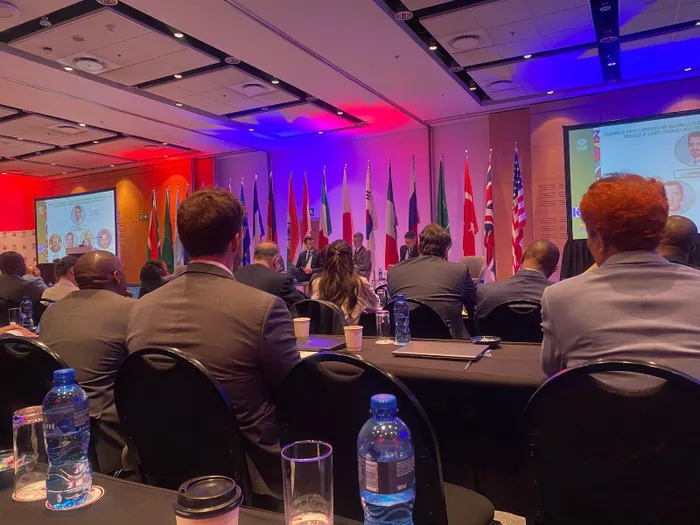G20 Energy Transitions Working Group explores energy efficiency and affordability in Cape Town

Panelists from South Africa, Ireland, the EU, and Eskom discuss global strategies to improve energy efficiency at the G20 Energy Transitions Working Group meeting in Cape Town.
Image: Wendy Dondolo
Government officials, energy experts, and international delegates convened at the Cape Town International Convention Centre on Tuesday for the 2nd G20 Energy Transitions Working Group (ETWG) meeting, where the focus turned sharply to global energy efficiency strategies and affordability challenges.
The Energy Efficiency and Affordability side event, held on Wednesday, featured robust discussions moderated by Jan-Christoph Kuntze, Head of GIZ’s Energy Team in South Africa, with panellists from South Africa, Ireland, the European Commission, and South Africa’s energy utility, Eskom.
“We are quite active both in South Africa and on the African continent, supporting energy efficiency implementation,” Kuntze said, adding that energy intensity improvements globally have slowed to just 1%, down from 2% in 2019.
“Are our policies fit for purpose to meet our 2030 goals?”
South Africa’s Deputy Director-General for Electricity and Energy, Thabo Kekana, emphasised the need for enforceable legislation to support the country’s ambitious targets.
“If your ambition doesn't scale, it's not big enough,” he said.
“We introduced the National Energy Efficiency Strategy in 2005, and now we’re aligning it with the 2030 goals, ensuring legislative support.”
Kekana highlighted initiatives such as LED streetlight retrofits in over 50 municipalities and the rollout of energy performance certificates for buildings.
“We want to promote awareness, imagine walking into a five-star green building,” he said.
Eskom’s Chief Engineer Darryl Chapman echoed the call for measurable and accountable action.
“It’s impossible to manage what you don’t measure,” he said, referencing Eskom’s national smart meter program and internal efficiency drives.
“Low-hanging fruit gets picked fast, achieving deeper efficiency is tougher and more expensive.”
Ireland’s Director General, Department of the Environment, Climate and Communications, Philip Nugent outlined a strategy to retrofit 500,000 homes and install 400,000 heat pumps by 2030.
“Two in five households report difficulties paying their bills,” Nugent said.
“Our one-stop shop approach simplifies access to upgrades, removing the hassle for consumers.”
Directorate General for Energy of the European Commission in Brussels, Erlendas Grigorovic praised the EU’s leadership in energy intensity gains.
“Without our energy efficiency improvements over the last 20 years, consumption would be 27% higher,” he said.
“Energy efficiency is not just about cost-saving. It’s a tool for achieving climate and security goals.”
He announced further EU initiatives, including the Green Industrial Deal and a new European Guarantee Scheme to de-risk energy efficiency investments.
The meeting continues until May 2 and includes remarks by Minister Kgosientsho Ramokgopa and Deputy Minister Samantha Graham-Maré.
IOL News
Get your news on the go, click here to join the IOL News WhatsApp channel
Related Topics:
